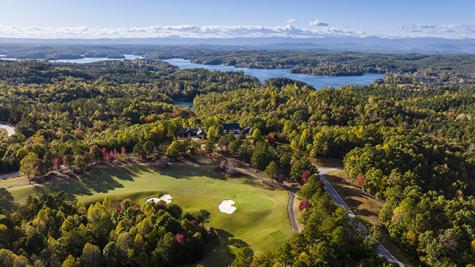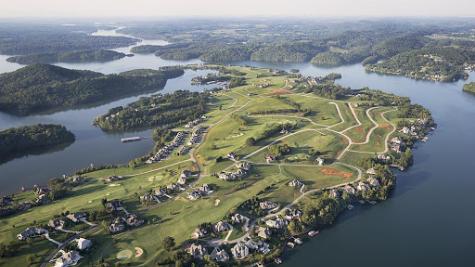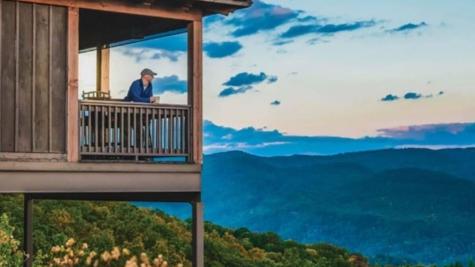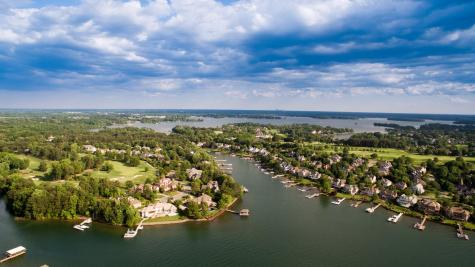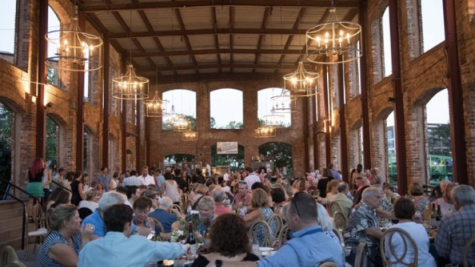The Top 5 Things to Consider when Choosing a Community
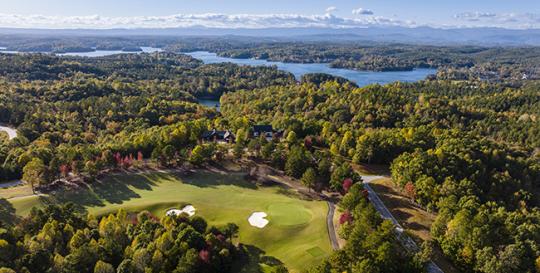
Choosing the right community to call home is an important decision that can significantly impact your quality of life. Whether you're simply seeking a change of scenery, growing your family, or settling into retirement, finding a community that aligns with your needs and preferences is key. Essential factors to consider when selecting the perfect place to settle down range from geographic location and area attractions to community type and amenities, as well as the developer's reputation and resident reviews. Keep reading to discover how to find the ideal community for you!
1) Location: Where Do You Want to Live?
Determining your preferred geographic location is the initial step in the community selection process. Many people choose to stay where they are, but thanks to the increase in remote work options, moves across state lines are on the rise. Keep these factors in mind when deciding where to relocate or retire:
Climate and Weather
For many, the main motivation for moving is escaping the snow for more sunshine! Depending on your personal preferences, evaluating the climate and weather patterns of the region you’re considering moving to is essential. Do you like a rainy day or lots of them? Are you okay with humidity, or do you prefer dryer climates? Another important consideration is your tolerance for seasonal change. Several people leaving the North for the sunny shores of Florida find they miss experiencing the four true seasons and end up moving halfway back. This has happened enough times that the term half-back has been added to the Urban Dictionary defining this trend. Make sure you take all of these factors into consideration so you only move once!
Natural Surroundings
Are you a beach lover, a mountain enthusiast, or someone who thrives in the hustle and bustle of city life? Think of the places you’ve visited where you’ve found the most peace, motivation, or joy. Choose a location that complements your lifestyle and presents you with the opportunity to pursue your interests. Moving offers the chance to establish new habits, routines, and daily rhythms, so take the time to think about what matters most to you. Your natural environment will help set the stage for creating the life you want.
Financial Factors
While money doesn’t buy happiness, everyone wants to make the most of their hard-earned income. If you are trying to choose between two different states such as North and South Carolina, comparing factors like taxes, cost of living, home values, and health care proves invaluable. Some states provide additional tax breaks for seniors so do your homework before making any final decisions.
2) Area Attractions: What’s Nearby?
Now that you’ve selected the right state for you and your family, focus on what area of the state fits best. Each area within a state is unique, every beach along the coast has its own vibe, and all towns have their own pace. How can you decide which one is your ideal?
City Size and Proximity
Some people want to be in the middle of the action in the biggest cities the country has to offer. Others prefer to be off the beaten path. Regardless of your preference, it’s important to take inventory of what your needs are such as access to airports and medical specialists. This will help you determine how close you should be to a major metropolitan area and even its ideal size. Identifying these factors is a helpful step to take in your relocation journey.
Recreational Opportunities, Shopping, and Entertainment
So, what do you like to do? What do you want to be near? Do the great outdoors appeal most to you with parks, hiking trails, and top fishing spots? Are shopping, fine dining, and multiple entertainment options your love languages? Make sure the communities you consider are located near areas that provide opportunities for you to embrace the experiences that add the most enjoyment to your life.
Distance to Schools and Work
For those who work out of the home and/or have children in school, researching employment and school options is critical. While many people move because of a job, others find the place they want to live and then search for employment in that area. Either way, considering the amount of time you’re willing and able to commute significantly impacts the ultimate decision of where you will live. Finding the right schools for your children is another huge factor. Many states have charter and private schools that provide additional options to area public schools. Online options have increased as well, providing additional flexibility for families as they make educational choices. Having convenient access to your schools and jobs will enhance your daily life and leisure time.
3) Community Type and Amenities: What Suits Your Lifestyle?
Now, we’re getting to the fun part! Each community has its own unique ambiance and offers different types of amenities. Take a close look at the following community types to determine which ones best align with your lifestyle:
Gated Communities
If security and privacy are high on your list of priorities, a gated community needs to be on your list! These communities often provide additional safety measures such as guarded entrances and security patrols. Typically, gated communities are only of the many amenities offered to enhance the quality of life found within the community.
Master-Planned Communities
These meticulously designed communities focus on creating a balanced lifestyle. Not only do they deliver exclusive amenities such as swimming pools, fitness centers, spas, equestrian facilities, walking trails, dog parks, playgrounds, and green spaces, they provide well-thought-out infrastructure that fosters a sense of community. Most master-planned communities focus on a main feature such as a professionally-designed golf course, a lake, the mountains, or a beach. You can often expect a variety of dining options, and many provide small general stores, post offices, boutiques, and other businesses such as law offices.
Active Adult Communities
Geared towards older adults, these communities typically offer amenities such as golf courses, fitness centers, social clubs, and planned activities specifically tailored to the active retiree lifestyle. They encourage socialization and provide opportunities for staying active and engaged. These communities are a great way to connect with people at the same stage in life with similar interests. They often provide home designs with aging-in-place options, transportation to healthcare facilities, and lower-maintenance living to provide the ideal retirement experience.
Community Events
Regardless of the type of community you choose and the amenities it provides, check to see if the community you’re interested in hosts regular events, festivals, or gatherings that create a sense of belonging and allow you to connect with your neighbors. Many communities offer book clubs and a variety of classes including art, cooking, and crocheting. They also come together to support local charities and important causes. Active community engagement can make a significant difference in your quality and overall enjoyment of life.
4) The Developer: Who Is Behind the Community?
The reputation and track record of the developer responsible for the community should not be overlooked. Do your homework to make sure you can check the following boxes:
Experience and Credibility
Research the developer's history, their portfolio of previous projects, and any awards or recognition they have received. A reputable developer with a proven track record indicates a higher likelihood of successful community development.
Quality and Craftsmanship
Visit existing communities developed by the company and observe the quality of construction, landscaping, and overall maintenance. Pay attention to the details and the longevity of the community's infrastructure.
Financial Stability
Ensure the developer is financially stable and can complete the community as planned as well as maintain common areas and amenities into the future. This will help avoid potential issues and ensure the community thrives over time.
5) Resident Reviews: What Are People Saying?
Gaining insights from current residents can provide invaluable firsthand information about the community. Consider the following approaches:
Online Reviews
If you really want to know about the pulse of a community, search for homeowner reviews. Community Finder is a website with over 10,000 reviews from residents. These reviews are incredibly helpful and tell you about the heart and culture of a community. Pay attention to recurring positive or negative comments regarding the community's management, amenities, and overall satisfaction.
Visit the Community
If possible, take the opportunity to walk around the community and strike up conversations with residents. Engage with them and inquire about their experiences, opinions, and overall satisfaction with the neighborhood. This will give you authentic insights into the community's dynamics.
Attend Open Houses or Events
Attend community events or open houses whenever possible. Engaging with current residents during these events allows you to directly interact with them, ask questions, and gauge the overall ambiance and community spirit.
The Home Stretch
Selecting the right community is a process that requires careful consideration of various factors. By thoroughly evaluating the geographic location, area attractions, community type and amenities, the developer's reputation, and resident reviews, you can make an informed decision that aligns with your lifestyle and preferences. Remember, finding your perfect community goes beyond merely finding a house; it involves discovering a place where you can truly belong and thrive. Take your time, conduct thorough research, and make a decision that will bring you joy, fulfillment, and a true sense of home for years to come!
To help you find a community that feels like home, Community Finder offers Area Information and a comprehensive community search tool that provide a starting point for your home-buying journey.
For more articles and community releases from Community Finder, sign up for our newsletter.

